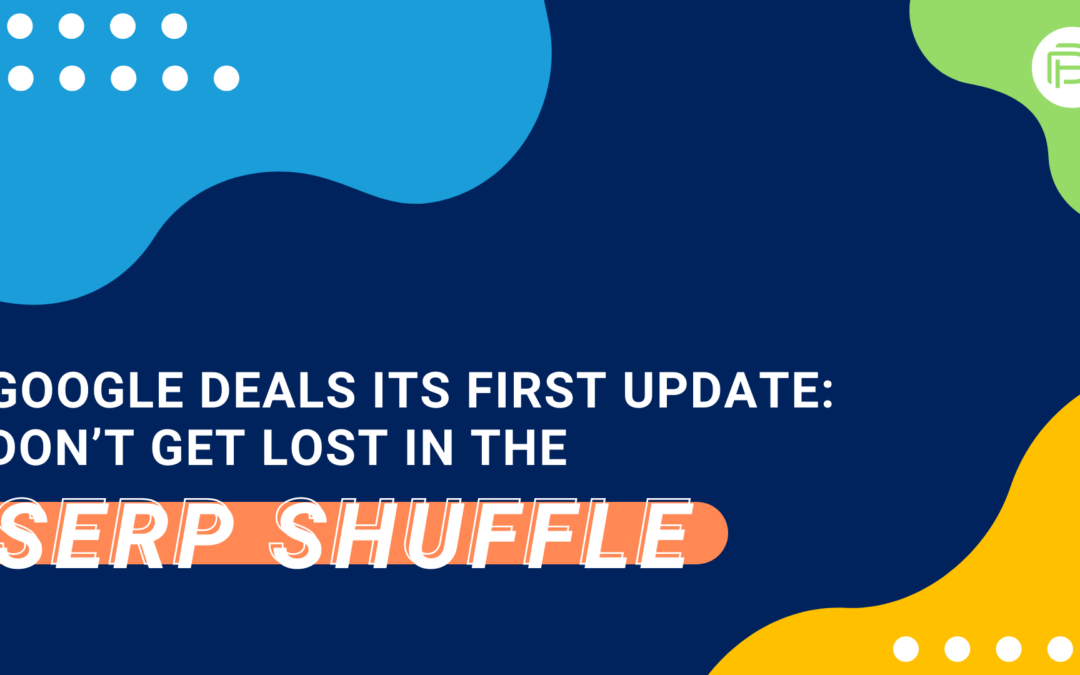The first Google Core Algorithm update of 2023 is here and while no update is exactly the same, SEO professionals are becoming more and more versed in what protocols and precautions to take when Google rings the algorithm alarm. As with any Google Update, it’s important to keep a close eye on your performance metrics and stay informed. As we know these changes, however small they may seem, can have massive ramifications (good and bad) for you and your clients’ websites.
What We Know So Far About The March 2023 Core Google Algorithm Update
Google began to roll out its first Core Algorithm update of 2023 on March 15th. This update focuses on all types of content and seems to be far-reaching in terms of the number and types of queries impacted. Many SEOs and SEO Platforms reported high fluctuations in search rankings the day after the rollout began, but in the following days, the volatility already seems to have normalized.
It’s important to note that with any update, it’s difficult to make any early proclamations claiming to understand exactly what’s been affected. Early shifts are not necessarily where the impact will be seen in the end, so it’s important to wait until the update has officially completed and the dust has settled to evaluate the full effect.
With this in mind, early observations have identified that results categories such as News, Finance, Shopping, Online Communities, and Games have seen the biggest fluctuations in rankings so far. Google doesn’t like to reveal the specifics of its algorithm updates, but as the rollout continues and the reshuffling of search results unfolds, Google’s methods for prioritizing and deprioritizing content should become more evident.
Steps to Take During a Google Core Algorithm Update
Here are some steps to take and things to keep in mind as we continue to monitor and evaluate the impact of Google’s update:
- Continue monitoring your site’s performance closely. While some effects may be immediate, others may not be noticeable until the next time your site is crawled and indexed.
- Stay informed. It’s important to continue to check for updates as the SEO community works to understand trends and identify the ranking signals that Google is evaluating.
- Be ready to pivot. Your organic traffic and your rankings will help you identify if and where you have been negatively impacted, and it will be up to you to quickly make adjustments to your strategy.
How to Avoid Being Negatively Impacted by a Google Core Algorithm Update
As Google’s Algorithm continues to evolve, the end goal remains the same: Google strives to better understand the intent of its users and markers of high-quality content in order to provide the best search results. This means the best thing you can do to remain in Google’s good graces is to prioritize creating a positive user experience and providing valuable content.
- Ensure that your content is valuable and unique. Remember Google’s E.E.A.T. Guidelines, and continue to prioritize the user experience. Also provide expertise, authoritativeness, and trustworthiness in your content.
- Keep your site technically tidy. Make sure your site’s technical features are optimized and site performance, like site speed, is addressed.
- Don’t try to cheat the system. Avoid black hat SEO tactics and stay true to organic methods of improving your rankings, growing your audience, and earning your backlinks.
Google’s Algorithm Updates are a regular occurrence that can have significant impacts on website rankings and traffic. As website owners, it’s crucial to keep a close eye on any updates and adjust your strategies accordingly. By focusing on providing high-quality content and prioritizing user experience, you can achieve long-term success and avoid being negatively impacted by Google’s Algorithm Updates.
The key is to stay informed, monitor website performance metrics, and remain vigilant when it comes to SEO best practices. In doing so, you will ensure that your website remains visible, relevant, and successful even in the ever-changing SERP landscape.
Allison Powers, SEO Strategist, Direct Agents

